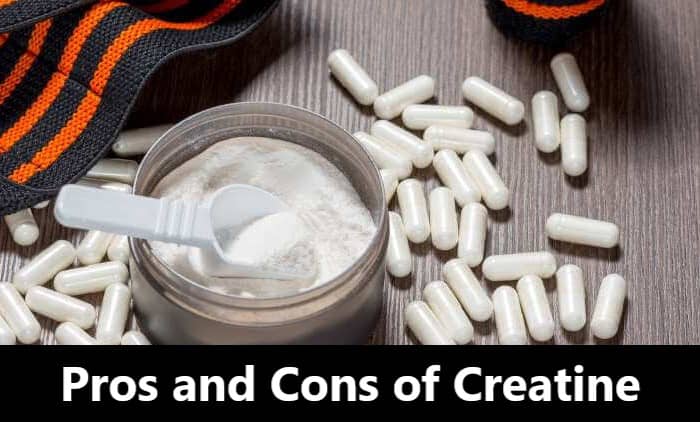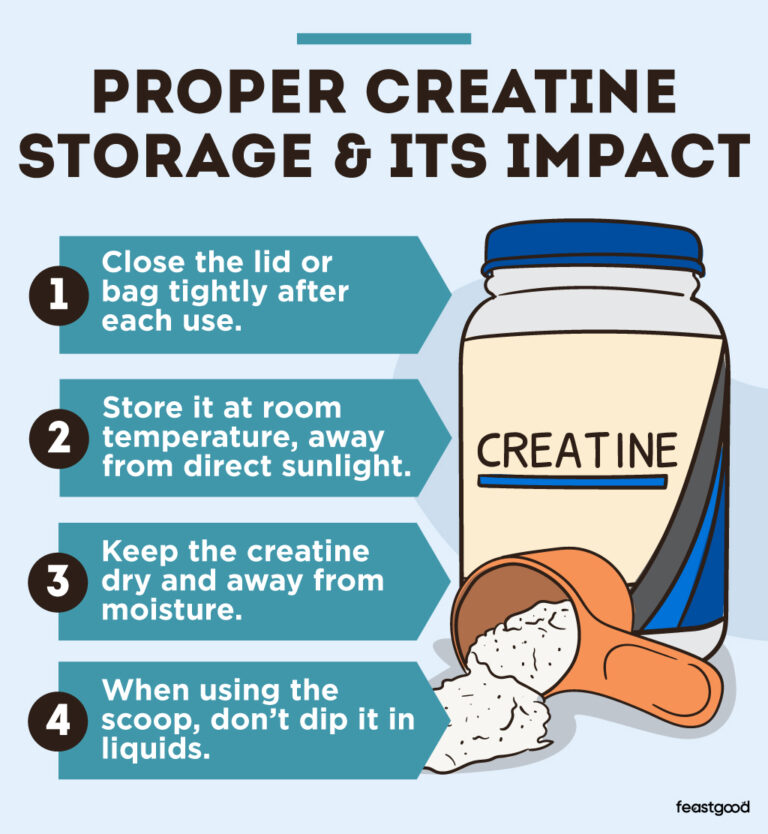Should You Take Creatine? Weighing The Pros And Cons

Table of Contents
The Science Behind Creatine: How Does It Work?
Creatine is a naturally occurring compound found in small amounts in meat and fish. Its primary role in the body is to help generate adenosine triphosphate (ATP), the main energy currency for muscle contractions. By increasing ATP availability, creatine allows for more powerful and prolonged muscle contractions, leading to improved performance during high-intensity activities.
Different types of creatine exist, but creatine monohydrate remains the most studied and effective form. Other forms, like creatine hydrochloride or creatine ethyl ester, are often marketed as superior, but scientific evidence supporting these claims is limited. Stick with the well-researched and proven creatine monohydrate for optimal results.
- Increased ATP production for enhanced power output: Creatine supplementation leads to increased intracellular creatine stores, resulting in more readily available ATP for muscle contractions.
- Improved muscle cell hydration and volume: Creatine draws water into muscle cells, leading to increased cell volume, which can contribute to muscle growth and strength gains. This is often referred to as "cell volumization."
- Potential for increased muscle protein synthesis: Some studies suggest that creatine may indirectly enhance muscle protein synthesis, further promoting muscle growth.
- Reduced muscle fatigue during high-intensity exercise: By providing a readily available energy source, creatine can help delay muscle fatigue and allow for more repetitions or longer durations of high-intensity exercise.
Proven Benefits of Creatine Supplementation
Numerous studies have demonstrated the positive effects of creatine supplementation on strength, power, and muscle growth. Its efficacy is particularly pronounced in high-intensity activities involving short bursts of energy.
- Increased strength gains in resistance training: Creatine supplementation has consistently shown to significantly improve strength gains in individuals participating in resistance training programs.
- Improved performance in high-intensity activities (sprinting, weightlifting): Athletes involved in sports requiring short bursts of maximal effort, such as weightlifting, sprinting, and jumping, experience considerable performance enhancements with creatine supplementation.
- Enhanced muscle mass and size: Creatine contributes to muscle hypertrophy (growth) by increasing muscle cell volume and potentially stimulating protein synthesis. This leads to noticeable increases in muscle mass over time.
- Potential benefits for cognitive function (memory, focus): While primarily known for its effects on muscle performance, some research suggests that creatine may also offer cognitive benefits, improving memory and focus. These effects are less pronounced than its impact on physical performance, but still noteworthy. Further research is ongoing.
Potential Side Effects and Risks of Creatine
While generally safe for most healthy individuals, creatine supplementation can cause some side effects, particularly in the initial loading phase. Proper hydration is crucial to mitigate these risks.
- Water retention and temporary weight gain: The increased water retention in muscle cells can lead to a temporary increase in body weight, mostly due to water weight. This is usually not a cause for concern.
- Gastrointestinal discomfort (cramps, bloating): Some individuals experience gastrointestinal discomfort, such as cramping or bloating, particularly when starting supplementation. This typically resolves with continued use or by adjusting the dosage.
- Potential strain on kidneys (for those with pre-existing conditions): Individuals with pre-existing kidney conditions should consult a healthcare professional before taking creatine, as it may put additional strain on the kidneys. For those with healthy kidneys, this risk is minimal.
- Importance of adequate water intake: Maintaining adequate hydration is essential to prevent any potential negative side effects. Drink plenty of water throughout the day, especially when taking creatine.
Who Should Consider Creatine Supplementation?
Creatine supplementation can be beneficial for a wide range of individuals, but it's especially useful for those involved in high-intensity exercise or looking to build muscle mass.
- Individuals engaged in high-intensity exercise: Athletes, weightlifters, and individuals participating in high-intensity interval training (HIIT) can greatly benefit from creatine's ability to enhance power output and reduce fatigue.
- Those looking to build muscle mass and strength: Creatine's ability to promote muscle growth makes it a valuable supplement for those aiming to increase muscle size and strength.
- Athletes in strength and power-based sports: Sports like weightlifting, sprinting, and powerlifting can greatly benefit from the performance-enhancing properties of creatine.
- Vegetarians and vegans (lower creatine stores): Vegetarians and vegans may have lower creatine stores compared to meat-eaters, making supplementation potentially even more beneficial for this population.
Creatine Dosage and Cycling
The typical recommended daily dosage of creatine monohydrate is 3-5 grams. A loading phase of 20 grams per day for 5-7 days is sometimes used to rapidly saturate muscle creatine stores, followed by a maintenance phase of 3-5 grams daily.
Creatine cycling involves periods of supplementation followed by periods of discontinuation. The rationale behind cycling is to potentially prevent the development of tolerance or to give the body a break. However, evidence supporting the benefits of creatine cycling is limited, and continuous supplementation at a maintenance dose is generally considered equally effective and possibly more convenient.
Conclusion
Creatine supplementation offers significant benefits for strength, power, and muscle growth, particularly for individuals involved in high-intensity activities. While some mild side effects are possible, they are usually temporary and easily manageable with adequate hydration. However, individuals with pre-existing kidney conditions should avoid creatine or consult their doctor before using it.
Should you take creatine? Decide if creatine is right for you. Weigh the pros and cons carefully and consult a healthcare professional before adding creatine to your routine. Learn more about optimizing your creatine intake for maximum results by exploring additional resources on [link to relevant page/article].

Featured Posts
-
 Is Creatine Safe And Effective A Comprehensive Review
May 15, 2025
Is Creatine Safe And Effective A Comprehensive Review
May 15, 2025 -
 Petco Park Witness To Padres Clean Sweep Over Giants
May 15, 2025
Petco Park Witness To Padres Clean Sweep Over Giants
May 15, 2025 -
 Vont Weekend Recap April 4 6 2025 97 3 Kissfm
May 15, 2025
Vont Weekend Recap April 4 6 2025 97 3 Kissfm
May 15, 2025 -
 Monsoon Forecasts And Economic Growth A Positive Outlook For Indias Farm Sector
May 15, 2025
Monsoon Forecasts And Economic Growth A Positive Outlook For Indias Farm Sector
May 15, 2025 -
 Luis Arraez And Jason Heyward In Padres Lineup For Crucial Game Against Opponent
May 15, 2025
Luis Arraez And Jason Heyward In Padres Lineup For Crucial Game Against Opponent
May 15, 2025
